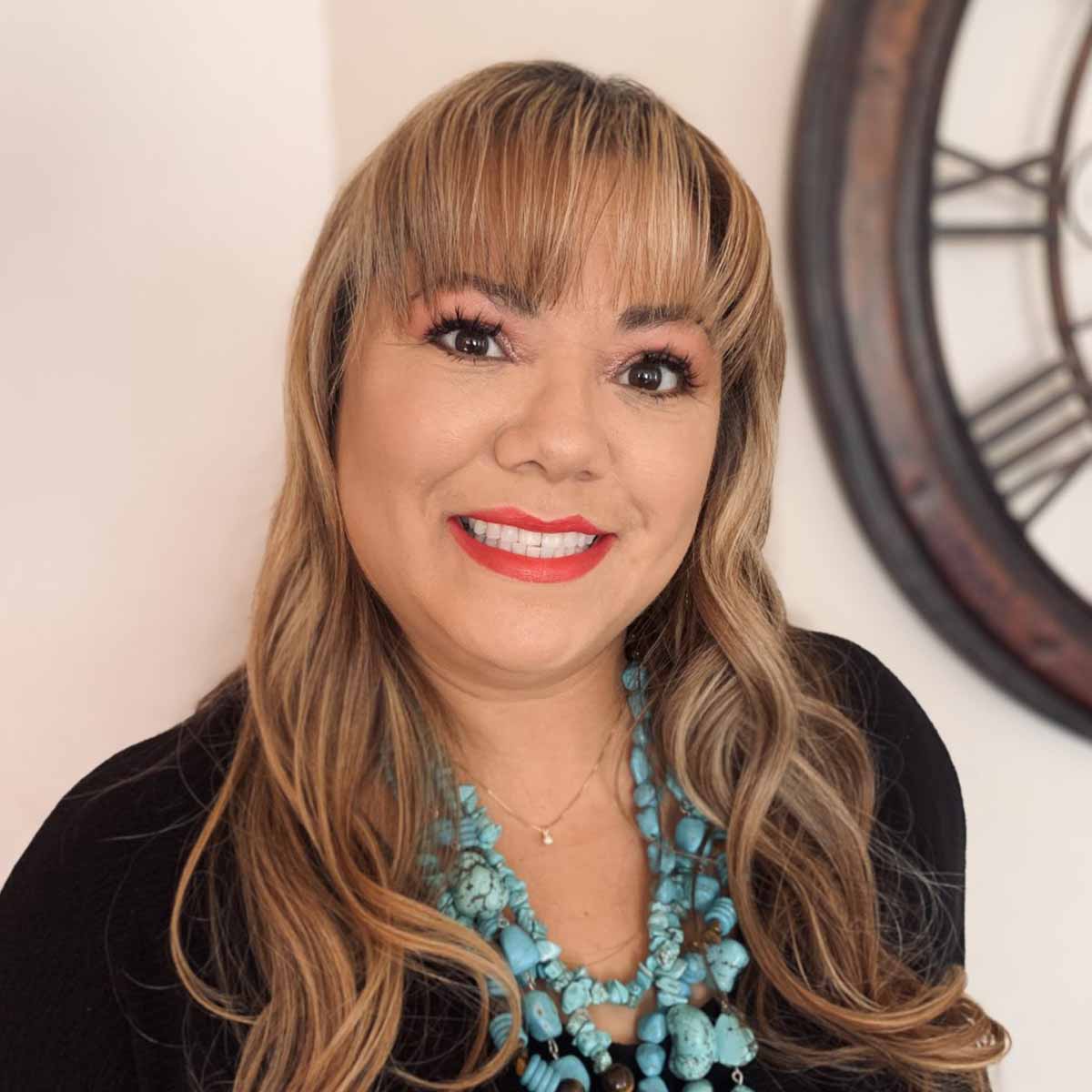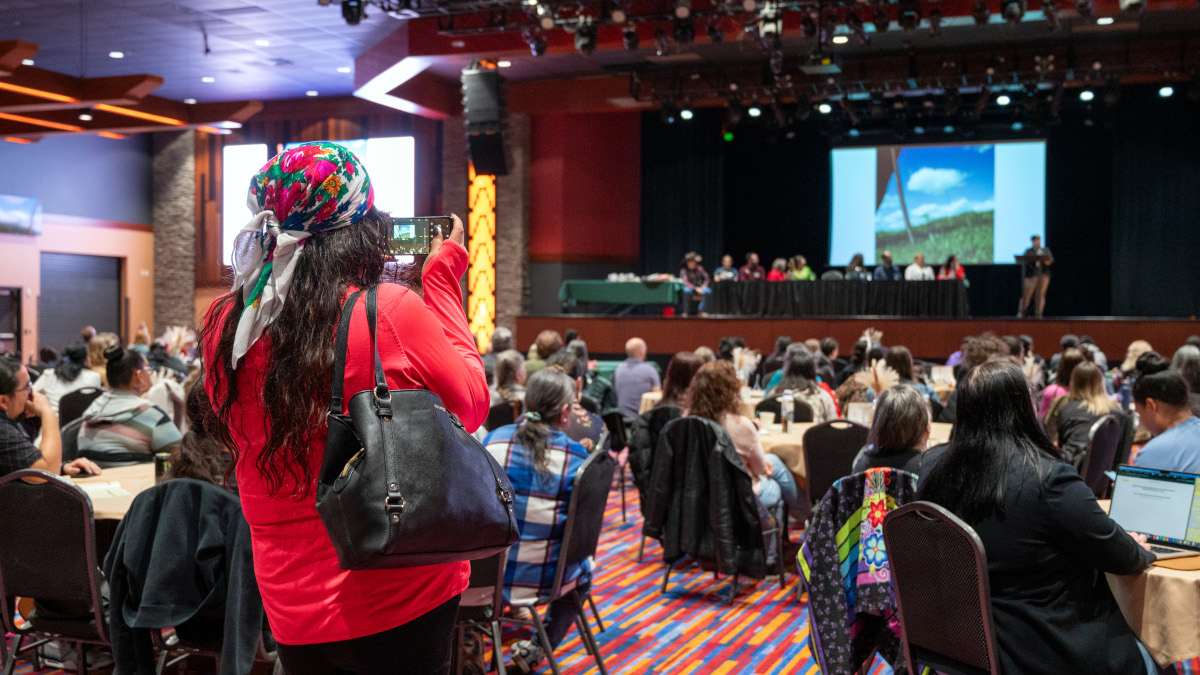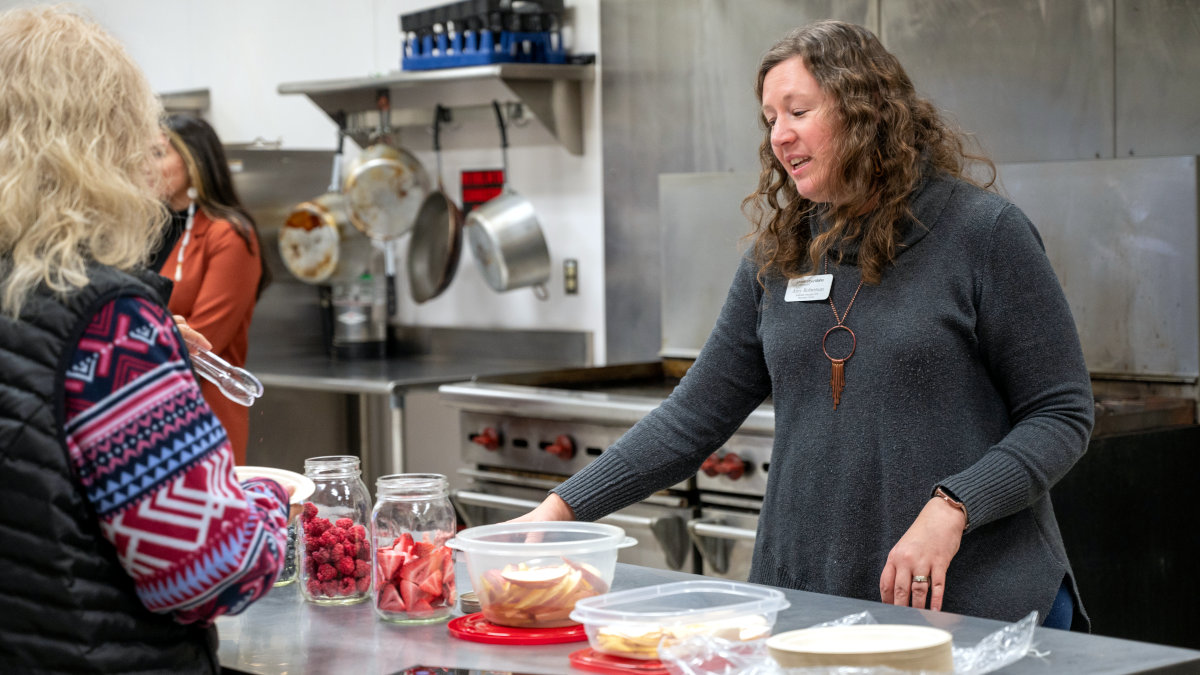Eat Indigenously
Regional Tribes Reclaim Roots Through Food Sovereignty Summit
Article and Photos by Megan Snodgrass, U of I Coeur d’Alene
The Northwest Intertribal Food Sovereignty Summit brings Indigenous people from across the United States back to their roots — literally.
The four-day conference witnessed the gathering of more than 300 attendees to celebrate Indigenous food, share knowledge and foster relationships across generations. The event grew from a local event put on by the Nez Perce Tribe and the University of Idaho’s Extension Nez Perce Reservation Office to a multi-cultural celebration of Indigenous food for people from across the country.
The event focused on food sovereignty as the core of Native American resilience. Danielle Scott, Extension Educator for U of I’s Nimiipuu Reservation Extension Office whose work with the local effort grew into the regional summit, said the ability of communities and tribal governments to “feed our own people on our own” is vital to the health of Native communities and cultures. Much of the conference involved being inclusive of traditional and Indigenous foods – such as salmon, elk, venison, roots and berries of the local land – for better health outcomes.
“It is well known that many Indigenous people have been suffering from high blood pressure, heart disease, autoimmune disease and other health issues ever since the Indigenous diet changed to include foods that contain pesticides, preservatives and chemicals,” Scott said. “Gatherings such as the Northwest Intertribal Food Sovereignty Summit bring like-minded people together to strategize on how we can make dietary changes to improve the health outcomes of future generations.”
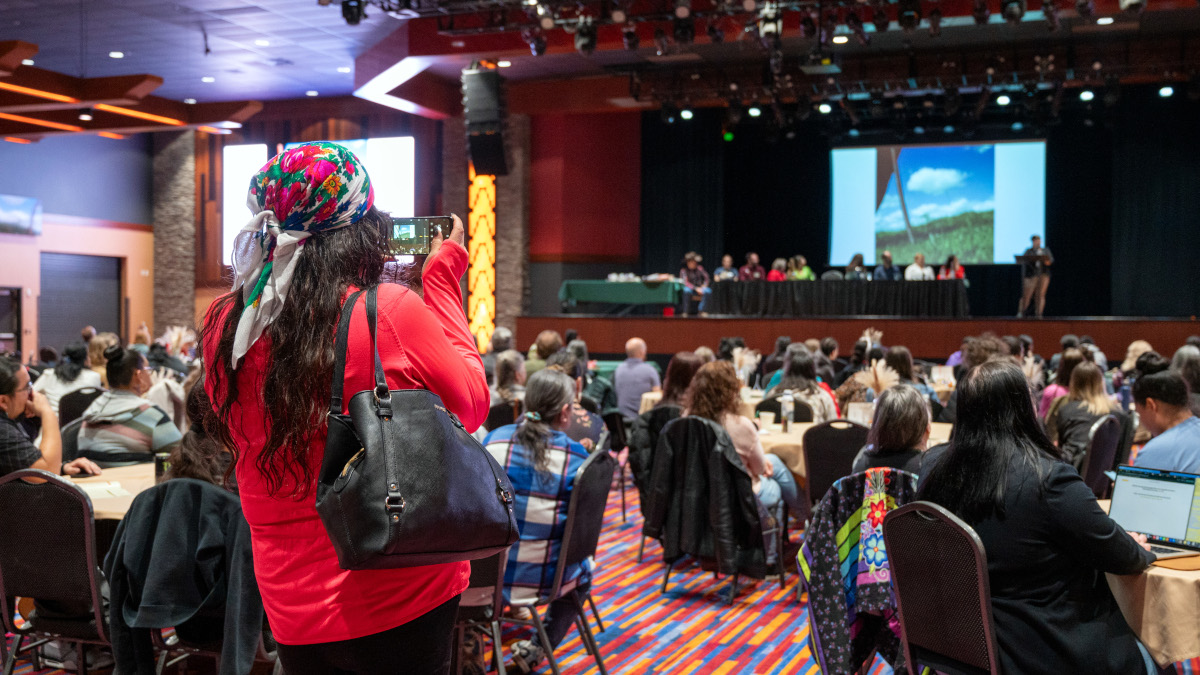
The 2024 conference was the first of its scale for the region. The concept originated in 2017 with a small number of attendees from the Nez Perce Tribe Reservation and has grown each year since. Scott said it was always the intent for the food summit to grow into a regional summit to include tribes from around the Northwest. Thanks to a grant from the U.S. Department of Agriculture’s Agriculture and Food Research Initiative, the plan for an Intertribal Food Sovereignty Summit was brought to life.
The event was organized by the Nez Perce Tribe, Coeur d’Alene Tribe, University of Idaho Extension offices from Coeur d’Alene and the Nimiipuu Reservation, Arrowleaf Consulting, Tahoma Peak Solutions and a non-profit organization supporting Nez Perce culture called Wistenqn’eemit. It was hosted by the Coeur d’Alene Tribe at the Coeur d’Alene Casino and Resort in Worley in March.
Attendees participated in food tours, listened to panels on the role of tribal governments in food sovereignty and tribal food enterprises, and attended break-out sessions. Small group sessions ranged in topic from small business development to Native Farm Bill Coalition policy updates to establishing tribally driven frameworks to support Native health, history, culture and traditions.
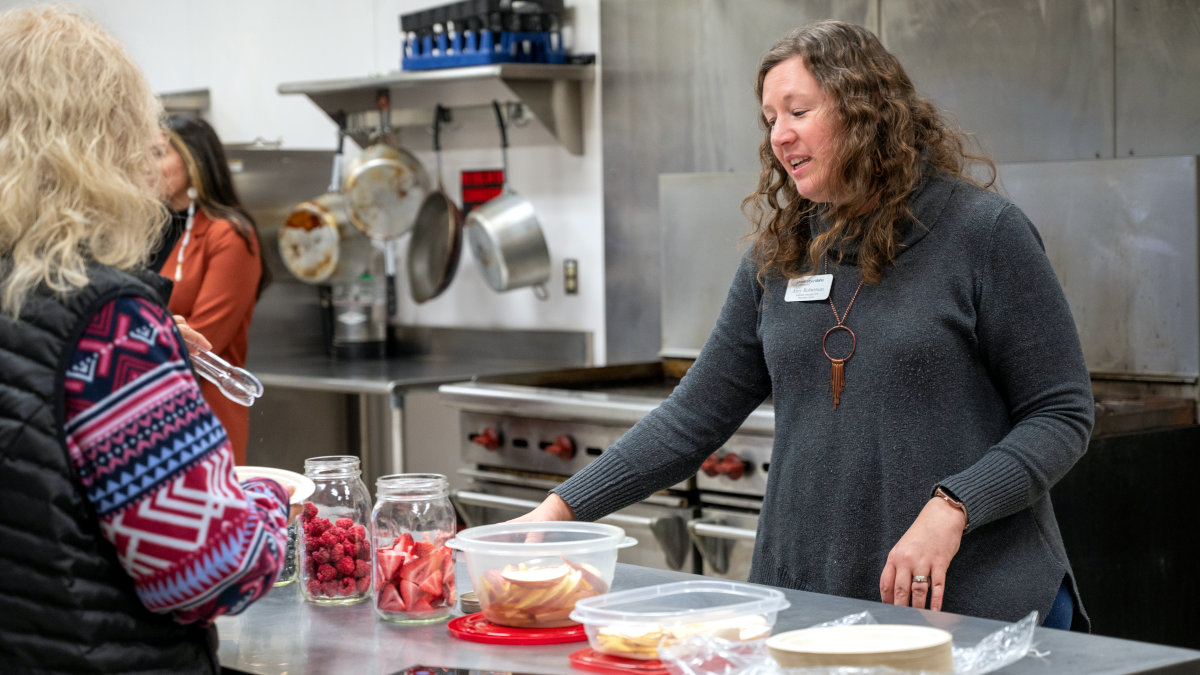
There was also a demonstration on how to prepare spiced bison skewers with coconut yogurt sauce and a road trip to a contemporary Native American restaurant called Indigenous Eats in Spokane, as well as a screening of the award-winning film “Covenant of the Salmon People.”
The final day of the conference included youth sessions, where students from around the region gathered over the weekend at the Rose Creek Longhouse in Worley to explore wild game and fish processing, waffle making with Indigenous foods, gaff hook making and traditional medicine. Extension faculty from U of I hosted youth sessions focused on freeze drying and food preservation, climate resilience and the importance of healthy water systems.
“Bringing the younger generation in is essential because they are the future and they need to know how to carry on the traditions, the culture, and the knowledge of their ancestors for future generations,” Scott said.
Gatherings such as the Northwest Intertribal Food Sovereignty Summit bring like-minded people together to strategize on how we can make dietary changes to improve the health outcomes of future generations. Danielle Scott, Extension Educator
Carla Timentwa, a member of the Nez Perce Tribe from Kamiah, said previous generations, including her grandparents, were connected to the land in such a way that “when they were talking about the land, it was like they were talking about their hands or their body.”
“They knew where the springs and the wells were; they knew where the berries were; they knew what time to go there. A lot of that has been lost because everything is so fast,” Timentwa said. “We don’t slow down enough to take that time to learn that when you put your hands into the ground or you put that stick into the ground, it just kind of binds you to it and brings you into that place, then you begin to realize, ‘I’m doing something that our people did for thousands of years. I am bound to this land.’”
Published April 2024.
This project was funded to University of Idaho by USDA AFRI under award 2022-68006-36434. The total project funding is $650,000.00 of which 100.00% is the federal share.







